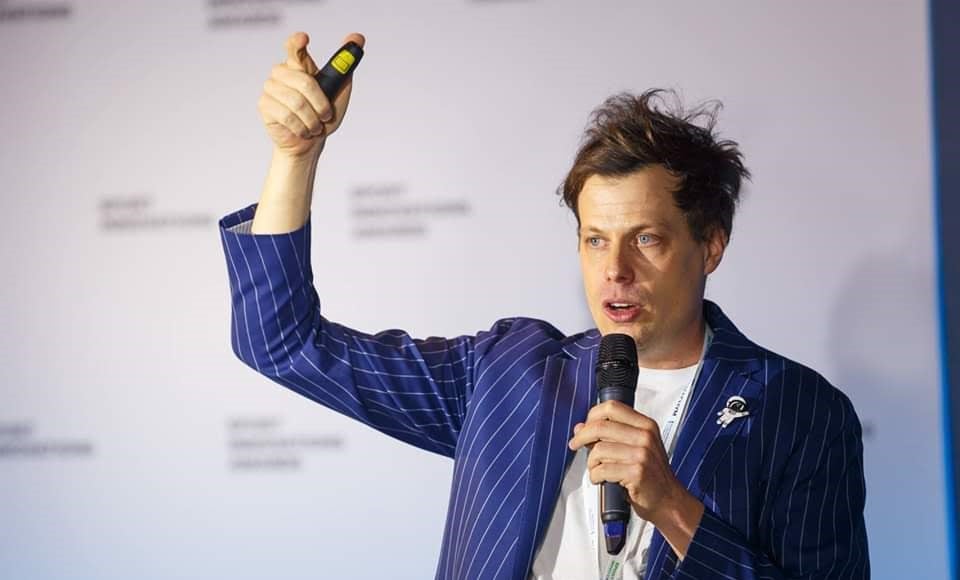Search the latest and greatest job opportunities in sport
Federico Winer is Business Development, Retail and Consumer Industries expert for SAP, the global enterprise software company. He has been working within the media, sports and entertainment sectors throughout his career and is a highly sought after industry influencer and passionate evangelist in his field. Besides his commitment to the industry, Federico is a dedicated visiting lecturer and speaker at several leading international educational institutions and is a PhD candidate at the Institute for Sports Business at Loughborough University London. We hear from Federico on his career and how technology led experiences in sport must connect to the humanities.
 Can you start off by telling us a little bit about yourself, your background and career highlights to date?
Can you start off by telling us a little bit about yourself, your background and career highlights to date?
I have been working in the technological industry for two decades, within the media, sports, entertainment and retail sectors. I bring expertise and deep understanding of how humanities and IT can coexist at the table, being a passionate evangelist in this field.
I am also a dedicated lecturer at several leading international educational institutions while studying for a PhD at Loughborough University London.
As Business Development, Retail and Consumer Industries at SAP, what are your key challenges and objectives?
We oversee the development of SAP solutions and implementations, working with our B2B clients transforming the end customer journeys accordingly to the latest trends in the market. What we look for is to deliver exceptional technological experiences for every stakeholder.
When it comes to helping clients and partners to articulate the real value of technology and use it to drive greater purpose within their own organisations, where do you begin?
My mom was an exceptional psychiatrist doctor. Before prescribing, she diagnosed the patient carefully by listening to them, understanding their behaviour, background and pain points. We look for the same process in business, and I apply this philosophy to every project. For technology to be successful, it should connect with arts and humanities. Customers must be empowered as business partners.
In my business unit, we deal with game developers, tournament organisers and other esports stakeholders in Germany. In the last twelve months, there has been a significant growth of the workshops with such prospects, as the esports industry is in a boom.
You also advocate for the Intelligent Enterprise strategy that allows for data to be rapidly transformed into insight, feeding process automation, innovation and optimal experiences in Retail and Consumer Industries. Can you tell us more about this process and the value?
Brands are transitioning from being company-centric to consumer-centric in the era of social technologies, when everyone can be a critic and populate it immediately. Whatever you do, whatever you say, will be replicated.
Content and products in the market need a context to have a meaning for the consumers and the right process and software implementation helps on this. Our Intelligent Enterprise strategy advocates for the success of corporations in this new experience economy and consists of suite of tools in different areas, like Digital Core and ERP management, Customer Experience, Supply Chain and others.
When it comes to the exponential growth of esports, which presents a ‘live’ sporting event delivered through technology, what’s next, and what can other sports and entertainment venues learn from this dynamic niche?
In my business unit, we deal with game developers, tournament organisers and other esports stakeholders in Germany. In the last twelve months, there has been a significant growth of the workshops with such prospects, as the esports industry is in a boom.
What others can learn from them, is that business models can change very quickly and the monetisation opportunities appear across different line of businesses. Particularly for the publishers, the next big thing is the development of more Artificial Intelligence (AI) and analytics around the gamers to customise the players and consumers experiences.
The rapid adoption of new processes for these challenges have transformed problems into new opportunities for development. This is a philosophy that other segments, like venues, should nurture as much as possible.
This article was originally published by our partner SportsVenueBusiness.
Find more great articles to learn about the sports industry on our Learn: Knowledge Hub
Search the latest and greatest job opportunities in sport
One of the many key success factors when assessing the quality of degree programmes is the employability rate of its gra...
Read moreThe global major event industry is one of the most thrilling and impactful career paths you can choose. If you’re lookin...
Read moreStarting his career in New Zealand within sports events, Regan gained valuable experience with Hockey New Zealand and Ne...
Read more